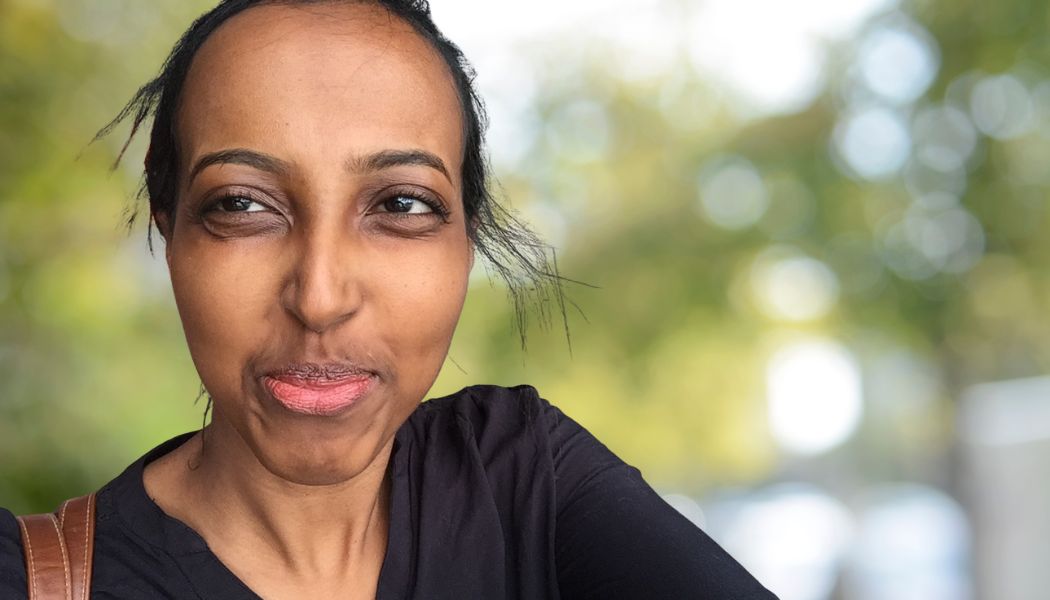For more than two decades, Nasra Mire has worked at the intersection of humanitarian service, non-profits, and community development.
Her career has taken her from international work across 25 countries to grassroots projects here in British Columbia.
“I think ultimately my work throughout the last 20 years has been around providing a service and supporting. A lot of my work has been for non-profits and NGOs and international development work. Really, most of it is just looking at vulnerable people and how to better support them and to be part of the change,” said Nasra.
This focus has never been limited to a single group. She has worked with refugee claimants, newcomers, youth, people struggling with homelessness and addiction, and now, vulnerable seniors. “So, there’s that consistent thread that keeps me going throughout,” she said.
Her education also reflects this commitment, as she holds a master’s degree in human rights law – a foundation that has shaped much of her overseas work.
Today, that expertise informs her work in British Columbia, where she supports local networks that address adult abuse, neglect, and self-neglect.
Joining BC CRN
Nasra stepped into her role with BC CRN in June 2025 as the Regional Mentor for the Sunshine Coast.
The timing, she says, felt right, and the Sunshine Coast—with its distinct rural communities—presents both unique challenges and opportunities.
Nasra saw this role as a way to combine her background in advocacy and international development with the very local, community-driven approach BC CRN is known for.
Building Awareness and Partnerships
A major part of Nasra’s role is engaging the public and professionals to recognize adult abuse and know how to respond. She draws a comparison to how society once viewed child abuse.
“One of the conversations I was having recently was about the evolution of child abuse versus elder abuse. And we were talking about how, 25 years ago or 15 years ago, people didn’t know how to report child abuse,” she said. “We were comparing the two and saying how elder abuse is at the beginning stages of folks really recognizing that this is actually happening and that a reporting system actually exists.”
This reflects some of BC CRN’s biggest strengths, which include prevention and awareness, as we equip communities to recognize abuse early and know where to turn.
The Rewarding Aspects of the Work
Although she’s new to the role, Nasra said those working at BC CRN have already made a positive impression.
“The people are just so warm. Between Heather and Kelina and Vicky and April, folks are so friendly. I felt that when I did my interview, folks were just so open and wanted to bring me on board and answer all my questions and check in with me.”
Early Lessons from the Sunshine Coast
The Sunshine Coast is made up of small, distinct communities, including Sechelt, Gibsons, and Pender Harbour.
For Nasra, learning the rhythm of rural life has been key.
“I realized how rural life is. Folks really do not connect and the regions are very separate,” she said. “Each community operates very differently based on what their bylaws, systems, and communities are like.”
This separation means building networks takes time, but Nasra said she’s found the community to be quite welcoming.
“You have to go out and do that networking and relationship building to really get a sense of who’s doing what and where people are. Otherwise, I think you miss out on those key conversations that could lead to really good relationships.”
Advocacy for Elders
Nasra’s passion for supporting seniors is rooted in her upbringing.
“I was raised a bit in my childhood by my grandmother. And I think, growing up here and then also having a cultural context from East Africa, the value of elders is not necessarily respected as much here. I think folks don’t really see the history you lose when you lose a grandparent or an elder who’s been around and has lived experience,” she said.
“Suddenly you get old and you lose your voice. But I think more than anything, their voices should be the most important voices in our society.”
Her words echo BC CRN’s guiding principles of respect, autonomy, and inclusion, and they also reflect our vision of a province where every adult is valued, respected, and supported.
Life Beyond Work
Outside of her professional life, Nasra embraces simplicity and family.
“I love to sit outside in my garden at home and drink a good cup of tea. It’s really simple. It’s mom life. So, for me, it’s just finding some quiet time in the day to get back into yoga, evening walks, and a really good dessert.”
For Nasra, summer is the perfect time for going to the lake with her children, picking cherries and plums, and enjoying the outdoors.
What might surprise people about Nasra is her artistic side, as she has a passion for creating, and even went to art school for a bit.
“I’m an artist at heart. Since I was a child, I’ve drawn and designed, and I think that ties into my love for problem solving or just being able to put pieces together, even if they don’t fit,” she said.
Though Nasra hasn’t spent much time on artistic endeavours in recent years, art remains part of how she sees the world, and that creativity now shows up in her approach to community work.
